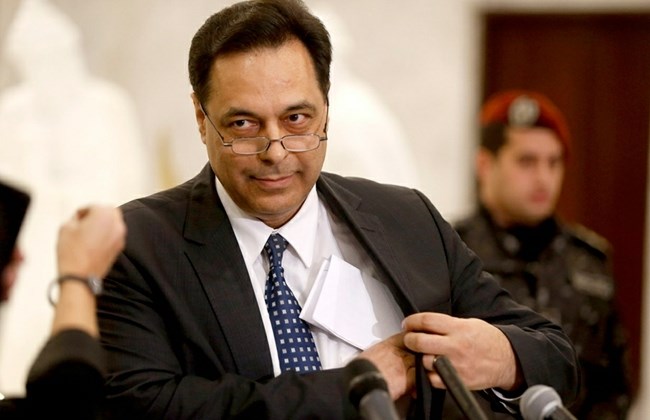I had given the tip to an international newswire but the reporter was too lazy to write it, so I did
The consortium led by #QatarPetroleum Int Ltd & Italy’s #Eni used elusive wording in its tender offer when it bid for the #energy contract, according to legal experts.
Moreover, the tender book also allowed the bidders to submit alternative offers to allow room for lower costs and possibly more feasible solutions, something which fiscally and economically challenged Lebanon needs.
The Qatari-led consortium gave a great offer on paper; that is until one gets past the pricing and into the legal wording of the offer itself.
As per documents received from credible sources,
QP’s bid noted that the prices may be reviewed at a later stage without noting reviewed by who
It also fails to note any mechanism for reviewing the prices and which index will be used in case of price fluctuation.
Speaking to a number of lawyers —some of whom had given consultations
When it comes to reviewing the cost, without stating that it can only be reviewed down,
Lebanese Labor Minister Camille Abu Suleiman (then at the time when I conducted the investigation),
A request was put through by the committee over two weeks ago to obtain and review the bids. (obviously this was prior to the riots&new gov)
As per the terms in the tender’s book, one party can be authorized on all three parts of the project.
According to Abu Suleiman, “as a matter of logic, authorizing one consortium to do all the parts of the project, adds additional risks.”
Two other members of the government’s energy committee, whom I spoke with back then on the condition of anonymity, agreed with
The works include developing 3 offshore LNG imports terminals in Zahrani, Beddawi and Salaata, as well as the #LNG imports, and pipeline development at the designated sites.
However, at a time when Lebanon is trying to control spending and fight its economic demons, one would expect the government to look for cutting costs without cutting back on quality.
And as the international community grows wary awaiting Lebanese
When the MoEW unfolded the offers two months back, the consortium
Or so it seemed.
The consortium had in fact fulfilled the best pricing as per the tender book’s primary conditions,but its offer falls behind when considering alternative bids offered by three other consortiums.
As per energy sources, the best-priced alternative bid was by #Total-led consortium, which saves the government nearly $300 million in annual costs, or up to $3billion in10 years.
This includes a consortium grouping BW, Vitol, Butec, AlMabani, and Rosneft.
The alternatives look at eliminating one of the 3 FSRUs (Selaata)
Even MoEW’s consultant on the tender book “Poten and Partners" had raised the point and registered its reservations on that matter two years back when the tender book was being prepared.
The land pipeline from Beddawi to Zouk is technically impossible as it needs to use the railway route & passes through heavily congested
Any leak could lead to catastrophic results.
Additionally it’s very costly and uneconomical for the government to repossess the land and clear it all the way, at a time when it is looking for cutting costs.
The Zouk power plant is burning
Both power plants at Beddawi and Zahrani, are running on much costlier diesel oil, despite the fact that they can
Lebanon currently pays around $330 million to $350 million per year on diesel per plant (Beddawi & Zahrani).
Should Lebanon move to gas, it would save up anywhere between $180 to $200 million/year per power plant.
Political Pressure?
3 months following the opening of the bids, the government remains at deadlock (7 months ago today)
(Please note that the new government under Prime Minister @Hassan_B_Diab formed a new committee to look into contracting #QatarPetroleum for the project provided QP & Eni lower the prices a bit. The negotiations
It is still unclear as to why the new PM insists on the costlier option.
The case remains true today, with 2 ministers as exceptions.
While some argue political bickering and alliances, others believe that
Meanwhile, rumors that the cabinet may cancel the whole FSRU/LNG project, were refuted by my sources.
1- Lebanon's already fragile political ties with #SaudiArabia and the #UAE may see further strain once the EQatar-led consortium nails the FSRU contract.
2- It is best to divide the contract on a number of companies (QP consortium plus
3- Lebanon cannot sustain bleeding dollars especially that it has officially defaulted and with a global
So, the additional option which would save the country over $200 million would be to discard the 3rd FSRU in Selaata (it shouldn’t cause any problem as it is a populous decision since the majority of the population
By dividing the work among 3 companies and not just one, work can start on the Bedawi and Zahrani FSRUs, so when they are complete, then there'd be no use for the Selaata FSRU.
However, the non-populous decision by politicians to have 3 FSRUs is set.
At the time being, their infrastructure is ready to use gas. Anyone who says that there are no FSRUs
There are gas tankers worldwide that come with an already installed FSRU on their surface, hence the ships which would import gas for Lebanon can provide that service until we build permanent FSRUs.








